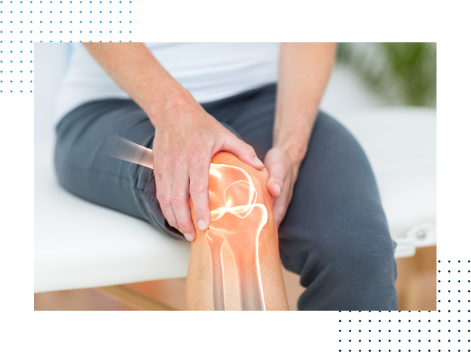Diseases We Treat

Conditions treated
Rheumatoid Arthritis
Rheumatoid Arthritis , abbreviated “RA” is considered a chronic autoimmune disorder and an inflammatory arthritis. In patients with RA, the immune system confuses the lining of the joints (synovium) with a bacteria or virus and sends all parts of the immune system’s attack force against these joints. This results in inflammation, pain, swelling and stiffness of possibly any joint in the body, though small joints in the hands and feet are most commonly affected. While joints are the most obvious targets of RA, it is important to understand that RA is a systemic disease and can cause other manifestations. For example, aggressive forms of RA can affect the eyes, lungs, blood counts and even skin. Additionally, RA patients may suffer from a unique form of fatigue that is thought to be at least partially related to the overactive immune system and inflammation.
Without appropriate treatment, RA can cause joint destruction, deformity, and loss of function. This can result in chronic pain, disability, and loss of occupation. Often this damage occurs in the first 2 years of the disease. Additionally, untreated RA patients have been shown to have a higher mortality (death rate) compared to unaffected patients. RA is also known to be associated with higher risks for lymphoma, anemia, osteoporosis and depression.
Given all of this information, our care center has a unique approach to diagnosing and treating Rheumatoid Arthritis. Beyond a detailed history and exam, we use the latest diagnostic tests to help diagnose and monitor our RA patients. Two examples of state of the art tests often used for our RA patients are LabCorp’s RheumAssure and VECTRA assay. Once a proper diagnosis is confirmed, the goal is to reduce the disease activity and ultimately achieve a remission state. At AOC we favor a ‘treat to target approach’ where we are constantly gathering information and looking to adjust a patient’s medical regimen to achieve a low disease activity or remission status. By following this methodical approach, we have found RA patients are better able to reduce pain, fatigue and live more active, fuller lives.